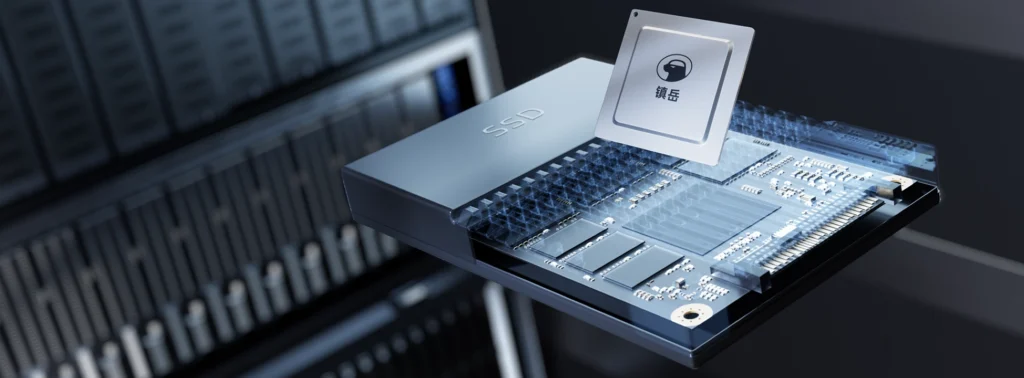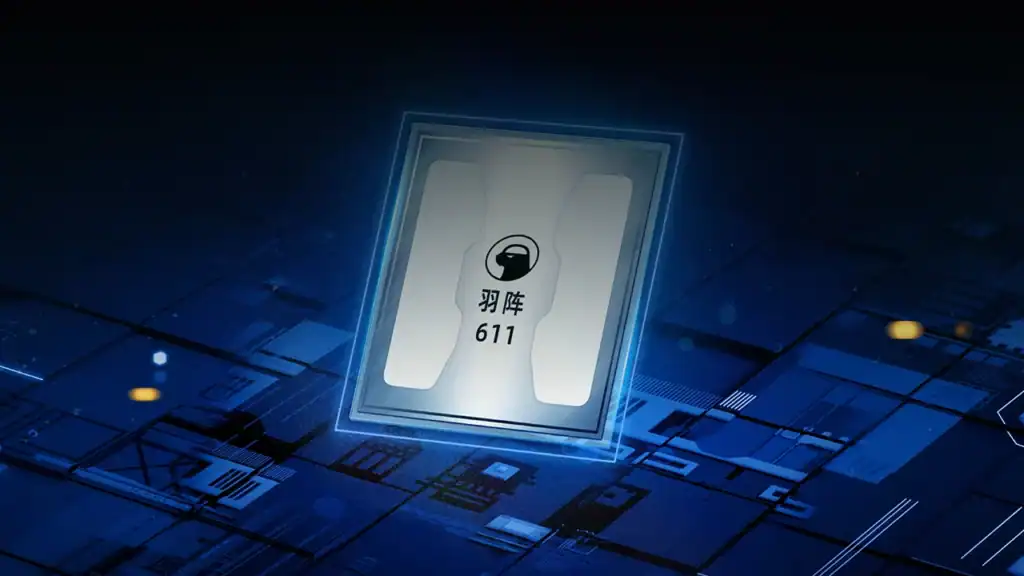Why This AI Chip Matters—and Fast
Alibaba, China’s cloud‑computing behemoth, has unveiled a new **Alibaba AI chip**, a versatile inference processor made by a Chinese fab, designed to reduce reliance on U.S. Nvidia technology, especially amid tightening export controls. This is not just a product—it’s a geopolitical statement backed by a whopping **$53 billion AI and cloud investment plan** over the next three years. This chip isn’t just about raw power; it’s about supply chain security. This makes **Alibaba AI chip** a key player in China’s ongoing AI revolution. As part of its expansion, Alibaba is positioning this chip as an essential piece of infrastructure in **Alibaba Cloud AI hardware**, potentially changing the landscape of global cloud services.
Where This Chip Fits In the AI Ecosystem
Industry insiders report the chip focuses solely on **AI inference**, not training—reducing complexity while delivering vital services like generative AI in Alibaba’s cloud operations. It’s manufactured domestically—marking a big shift from earlier AI chips outsourced to Taiwan’s TSMC. Alibaba’s Cloud‑Intelligence division alone grew 26% year‑over‑year, underscoring how critical AI hardware is to its overall growth. This chip supports a wide range of AI use cases, including:
– **Natural language processing (NLP)** for chatbots, virtual assistants, and AI-driven customer service.
– **Generative AI** capabilities, which could revolutionize content creation and media industries.
– **AI-driven data analytics** to optimize business intelligence, forecasts, and decision-making across industries.
For further reading on how AI is evolving in cloud services, explore our Artificial Intelligence tag.

Technical Specifications
Market Ripples: Investors React
Markets moved quickly after Alibaba’s announcement. Alibaba’s shares spiked—up to **+13%** on the news. In contrast, **Nvidia stock dipped 3–4%**, reflecting investor concern over its shrinking footprint in China. Analysts view the move as a sign of China intensifying its domestic AI-chip capabilities while reducing exposure to U.S. tech—and stabilizing its own supply chains. Performance may lag behind Nvidia’s Blackwell or H100—but for inference workloads, speed, localization, and supply security matter most.
China AI Chip Race: The Strategic Arc
This isn’t Alibaba’s solo maneuver. It’s part of a broader **China AI chip race**. Other players like Huawei, Cambricon, MetaX, Enflame, and Biren are also building inference or training accelerators to expand the domestic semiconductor ecosystem. This uprising is fueled by geopolitical pressure and U.S. export curbs on advanced chips.
☕ Enjoying the article so far?
If yes, please consider supporting us — we create this for you. Thank you! 💛
Alibaba Cloud AI Hardware: A New Era
The chip slotting into Alibaba’s infrastructure means more than independence—it means **Alibaba Cloud AI hardware** is becoming self‑reliant. With RISC‑V compatibility and Nvidia‑software support, dev teams can transition without rewriting code—bridging old pipelines with new, local silicon. Coupled with China’s push for RISC‑V adoption and Alibaba’s Xuantie CPUs, the cloud‑stack is rapidly evolving toward self‑sufficiency.
Development Timeline
2022 Q4
Initial R&D efforts begin with focus on inference optimization
2023 Q2
First prototype chips manufactured and tested
2024 Q1
Software compatibility layer with Nvidia systems completed
2025 Q1
Mass production begins and integration with Alibaba Cloud starts

Future-Proof with Qwen AI Alibaba
Alibaba is also integrating the chip into its Qwen AI model deployment workflows. The **Qwen AI Alibaba** integration promises smoother, faster inference across cloud platforms—boosting performance while mitigating geopolitical risk. Although search interest is lower, it’s strategically significant as GenAI becomes central to Alibaba Cloud’s growth strategy.
What You Must Do (as a tech leader)
- Track development closely—this Alibaba AI chip could shift cloud infrastructure strategy.
- Evaluate compatibility—Nvidia interoperability could simplify migration.
- Watch China policies—local chip initiatives are only accelerating.
- Prepare for hybrid deployments—mix domestic and Nvidia hardware intelligently.
- Monitor competitors—Huawei, MetaX, Cambricon and others all compete in inference space.
FAQ: Quick Answers
A: Not yet. The new chip covers inference. Training still depends on Nvidia’s Blackwell/H-series.Q: How does this affect Alibaba stock?
A: Positive—announcement sparked a double‑digit rally in shares.Q: Can users deploy existing Nvidia AI code?
A: Yes. The chip supports Nvidia-compatible software frameworks, easing transition.Q: Will its performance surpass Nvidia’s?
A: Unlikely—initial versions focus on inference, trading peak performance for supply security.
Final Summary
1. **Alibaba AI chip** is a major step toward reducing Nvidia dependence in China.
2. It’s inference‑focused and software‑compatible with Nvidia systems.
3. It’s part of a wider **China AI chip race** fueled by geopolitics.
4. Positioned to power **Alibaba Cloud AI hardware** and Qwen AI deployments.
5. Investors rewarded Alibaba, while Nvidia felt pressure on its China operations.
Spread the Word
This isn’t just corporate news. It’s a turning point in the AI chip arena. Share it with colleagues, dev teams, and industry watchers—because understanding the future of AI hardware means knowing the players and the pressure points.
If you found this article interesting, be sure to explore our dedicated AI section for more in-depth coverage on cutting-edge developments in artificial intelligence.
Did you enjoy the article?
If yes, please consider supporting us — we create this for you. Thank you! 💛



